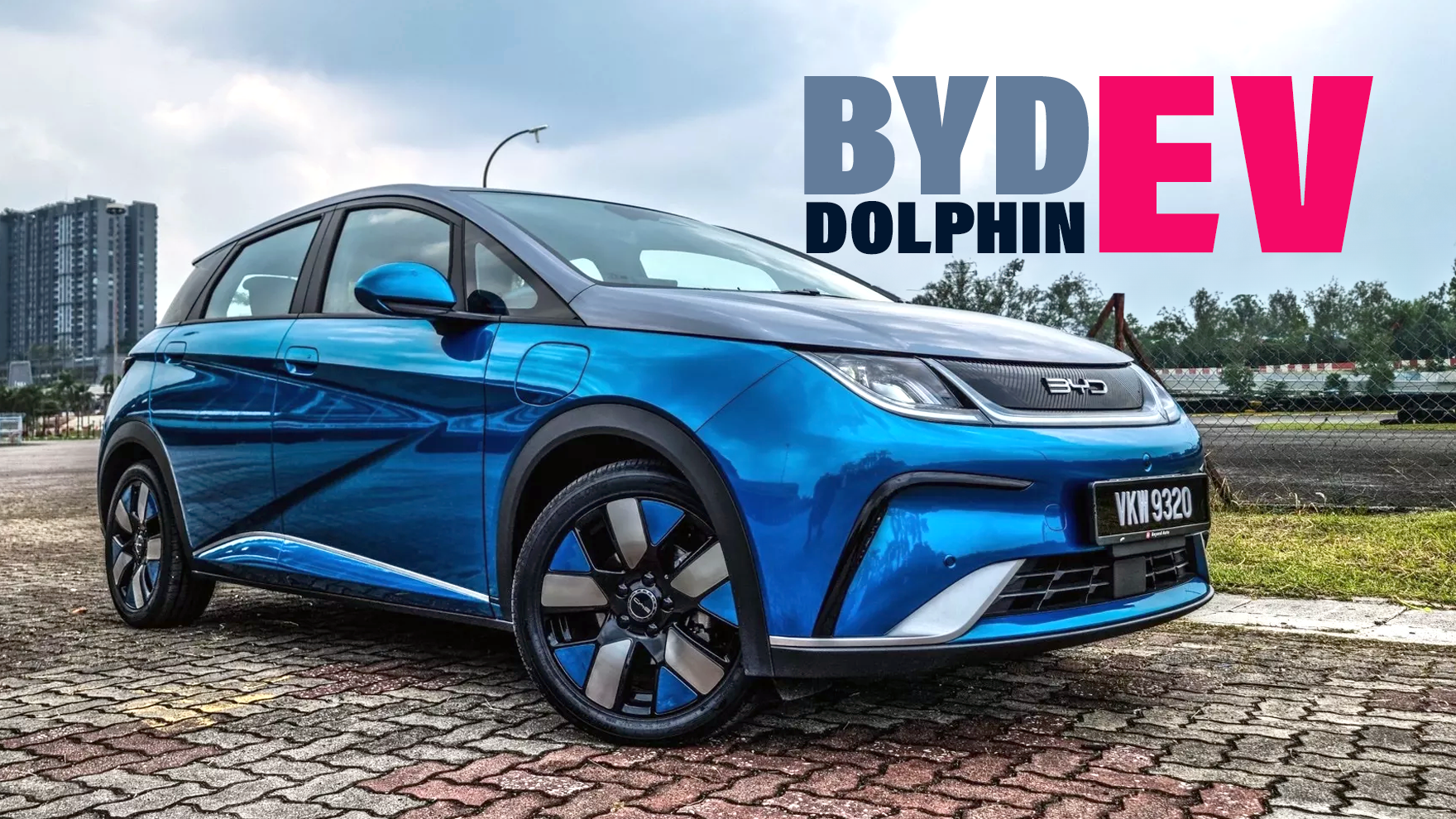Okay, let’s get one thing out of the way. Think aquatic-themed cars; the first ones to jump out would be icons such as the Corvette Stingray or the Plymouth Baracuda. I envisage a small team of execs brainstorming these powerful monikers in a brown room with sink-in leather chairs, complemented with copious amounts of alcohol and an oh-so-60s smoke-filled atmosphere… A la Mad Men. Not once do I think they ever considered the Dolphin tag to name anything in their lineups.
And yet here we are, with the BYD Dolphin, a car that becomes an important part of the Chinese automaker’s “Ocean Series.” It joins other naming masterclasses such as the Seal and Sea Lion. I’m hoping a mini-van Manatee, or a Whale-tastic SUV are announced at some point in the future.
However, as we found out with the similarly odd-sounding (at least for the West) BYD Atto 3, there’s far more to this automaker’s offerings than meets the eye. Indeed, dive beneath the surface with the Dolphin and you’ll find it’s quietly dominating in a space that should be occupied by the non-existent yet but much speculated Tesla Model 2. At least, wherever BYD is sold anyway.
More: We Review The BYD Atto 3 EV, Which Delivers Competence Without Revolution
advertisement scroll to continue
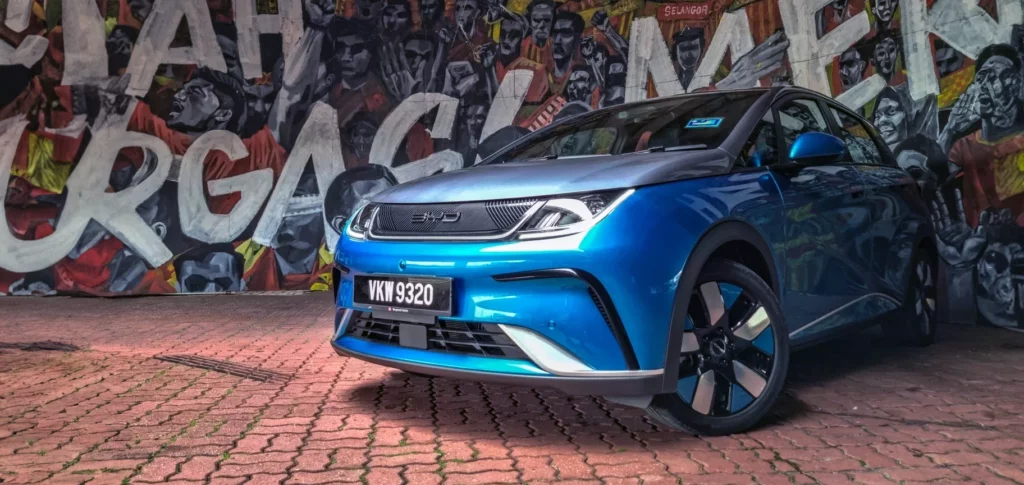
Quick Facts
(Not A) Fish Out Of Water
In most markets, the BYD Dolphin will likely be one of the cheapest offerings in the EV pool. And that’s important. Because not only does it have to convince you and me that it’s a good car, but it also has to persuade a great deal of consumers that EVs are a viable alternative. That brings with it a whole load of conflicting requirements.
The Dolphin must be cheap enough to be attractive, offer enough tech to keep users engaged, and showcase anything but bargain-basement finishes. And it has to do all that with a range long enough not to be considered burdensome to new adopters (just look at the Honda e and Mazda MX-30 to see how that can go wrong).
Have You Ever Opened Up A Dolphin?
The exterior design of the Dolphin, in what seems to be a theme for BYD, is fairly safe, save for the two-tone paint job and textured C-pillar. But the overall proportions just don’t sit right, with the four wheels looking small in contrast to the tall waistline, narrow width, and upright front end.
However, it’s the interior that adds a bit of pizzazz to the mix. Sure, the door handles are modeled off fins, but get past that, and you have a cabin that tows the line between cost efficiency and quality. Most of the dash is dominated by harder plastics, but they feature a cross-hatch texture for contrast. There’s more premium-looking plastic around the vent surrounds, and the vegan seats’ stitching is top-notch.
Photos Sam D. Smith / Carscoops
The center of the cabin is dominated by the party-trick swiveling screen, which can go from portrait to landscape in seconds. Below it, are a bank of buttons, which would have been useful had they not been reserved for features that don’t get interacted with enough to warrant a physical touchpoint. These include the front demister, hazard lights, and regenerative braking strength. Yes, there’s a button to switch the HVAC fan on and off, but there’s no way to adjust fan speed or temperature quickly. For that, you’ll have to delve into the infotainment menus. Madness.
Aside from that, there’s plenty of storage space, including a Qi charger that holds your phone in the armrest and USB C and USB A charge ports front and rear. All in all, the Dolphin makes the most of the space. Rear seat passengers get plenty of light from the side windows and the panoramic sunroof, plus touch-activated map lights and a sturdy fold-out center armrest ensure that at no point does the interior feel low rent.
Boot space has been sacrificed for rear leg room (which is surprisingly good), but there’s a false boot floor that gives you a deeper compartment for the weekly shop and split folding rear seats for the times you need to haul a chest of drawers.
It’s Still An EV Though
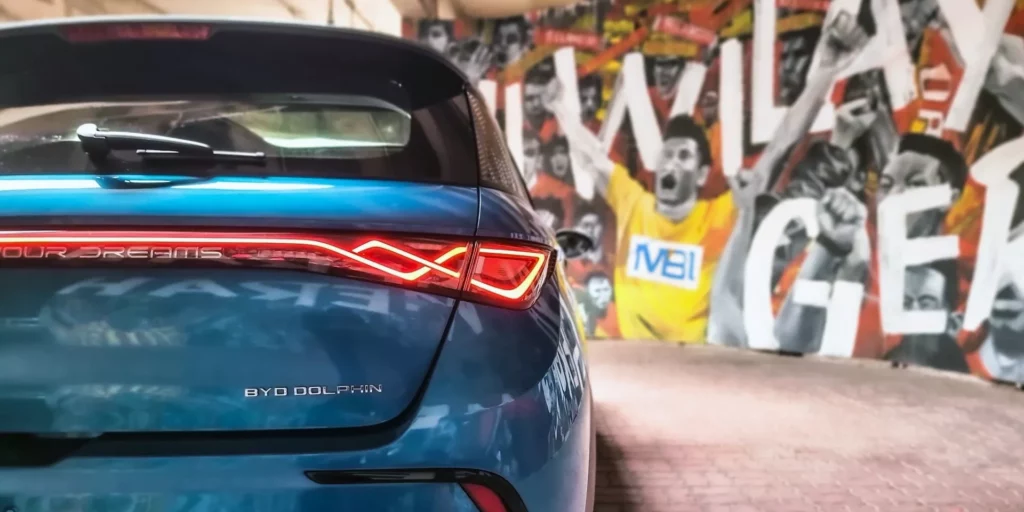
Here, BYD’s scale and technology give the Dolphin a helping fin hand. The Dolphin uses the company’s LFP Blade battery. In layman’s terms, the chemistry and tech results in a more stable and efficient power store, enabling the Dolphin to not only last longer between charge ups, but also harness better thermal conditioning to theoretically prolong its lifespan.
You get the choice of two drivetrains. The entry-level “Dynamic Standard Range” Dolphin features a 70 kW (94 hp) motor with a 44.9 kWh battery. That translates into a 0–62 mph (0–100 km/h) time of 12.3 seconds and a WLTP range of 210 miles (340 km).
advertisement scroll to continue
Related: BYD Declares EV Price War With New $14K Dolphin
Our Malaysian test car was of the “Premium Extended Range” variety and featured the same motor and battery found in the larger BYD Atto 3. With the 60.48 kWh battery, range increases to 265 miles (427 km), while the motor is more than double the size, at 150 kW (201 hp). The effect is evident, with the 0–62 mph (0–100 km/h) time slashed to 7.0 seconds.
Messing around with the regen settings regularly added a few extra km onto the estimated readout. At the same time, even with a series of mixed driving over several days, range anxiety was kept at bay thanks to the fairly deep reserves.
Driving Impressions
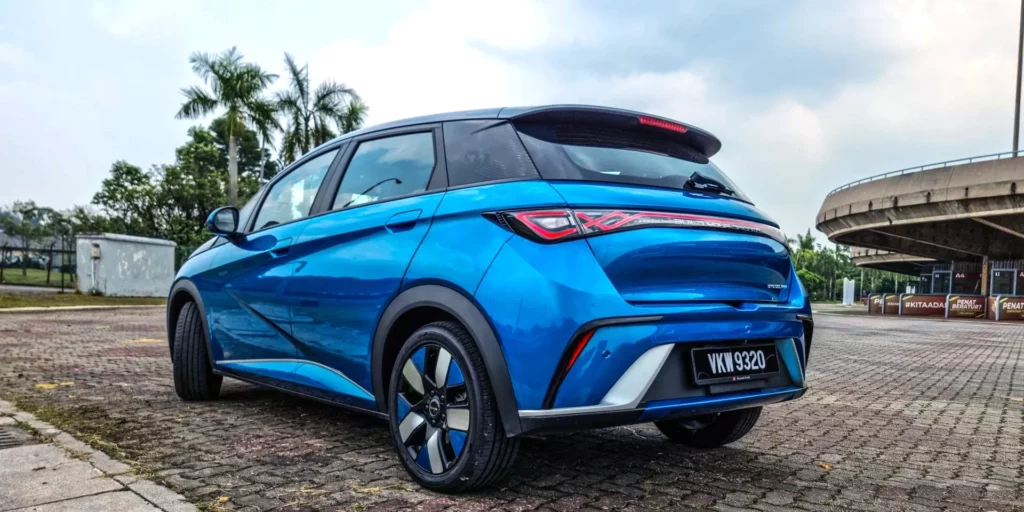
Coming from the Atto 3, the Dolphin surprised us in that it doesn’t seem to temper its power delivery. On the Atto 3, it was almost as if the accelerator pedal had been purposefully dulled to avoid any unintentional bursts of acceleration. Not so in the Dolphin. Well, not quite.
See, while pushing the accelerator does get an instant response from the motor, it’s not all acceleration. Instead, a great deal of what’s experienced is the front wheels grappling for traction. Yep, this entry-level EV can do some impressive wheelspins. Even more so in the wet.
In truth, it’s probably down to the Linglong “comfort” tires fitted to our test car, which seem to be standard across the range. Perhaps it would be a different story with gripier rubber. Don’t get me wrong. It added much amusement to what is otherwise a fairly sterile EV experience. But there’s potential to catch someone out, particularly those new to the instant torque offered by EVs.
Read: BYD To Finalize Location For Mexican Factory This Year
What this means though is that the Dolphin can swim with the best of them around town (last aquatic reference, I swear). The short wheelbase with the wheels pushed to the corners gives the Dolphin a fairly nimble demeanor despite the tall seating position and high center of gravity. Combine the agility with the point-and-squirt power application, and you have something that can zip in and out of city streets with a natural adeptness.
The story is different on freeways. The slab-sidedness and skinny tires don’t add up to confidence-inspiring high-speed maneuvers. It never feels unsafe, but you can sense that the Dolphin would be happier confined to smaller city streets with only the occasional trip out of its comfort zone.
Similarly, the large wheels and low-profile tires don’t soak up bumps as well as you’d hope, while the large blindspots thanks to the thick c pillars and small rear window make reversing a bit a chore — at least, for those of us who don’t solely rely on the rear-view camera.
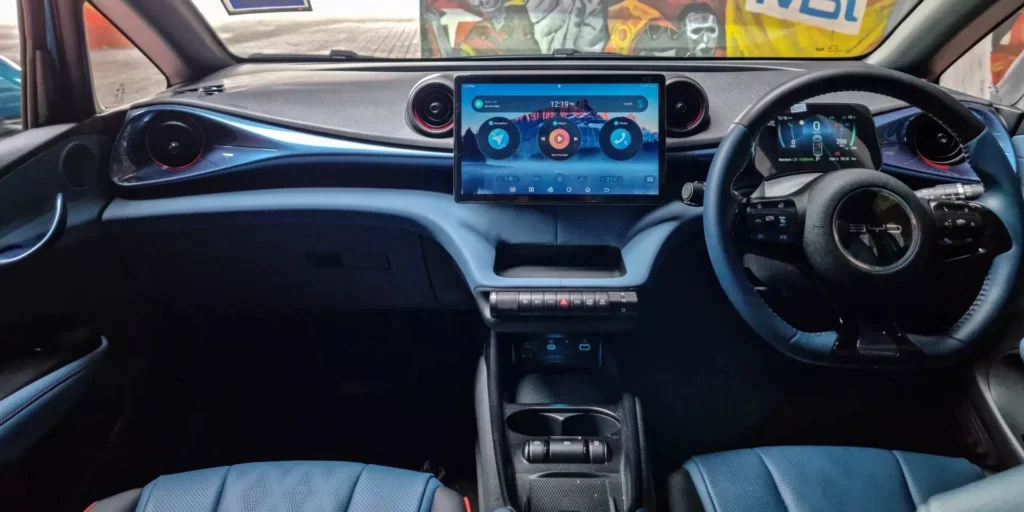
And The Verdict Is…
The BYD Dolphin is not without its faults. But these are faults that are commonly found in most low-priced, entry-level offerings. The supermini fulfills the job description of a small runabout and offers enough range to make it a sensible option in an ever-evolving landscape.
It offers comfortable seating for four with a spacious interior, plus enough features to entertain new adopters. The build quality appears to be good, while the cabin, although built to a price, doesn’t feel cheap or nasty at any point. The same can be said for the driving experience. It’s by no means the last word in dynamism. But, the Dolphin excels for certain use cases, such as nipping around town.
It may be sitting at the cheaper end of the EV spectrum, but BYD’s small car isn’t lacking in features. It’s not only the impressive battery tech. The full-length panoramic sunroof, standard heat pump, rotating 12.8-inch infotainment screen, and things such as radar-guided cruise control and six-way adjustable electric seats are all borrowed from the upper rungs of the usual small-car pecking order.
With a few tweaks, like gripier tires, softer suspension, and perhaps a bit of a button rethink inside, the Dolphin could score much higher. But even as is, it’s a competent package that is bound to win fans.
Special Thanks: Thoriq Azmi

